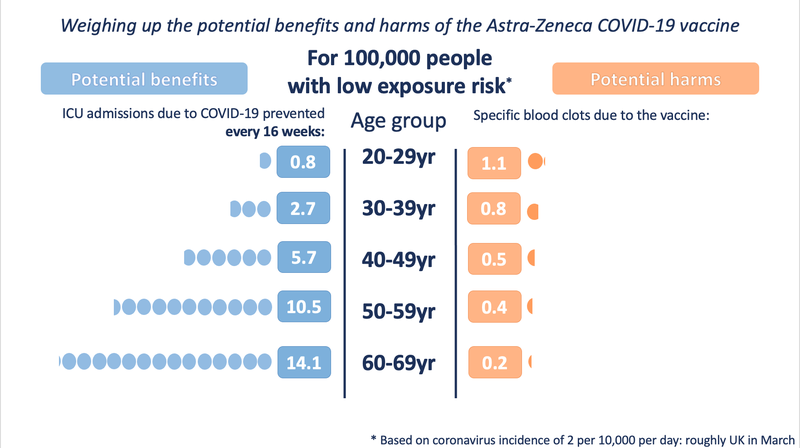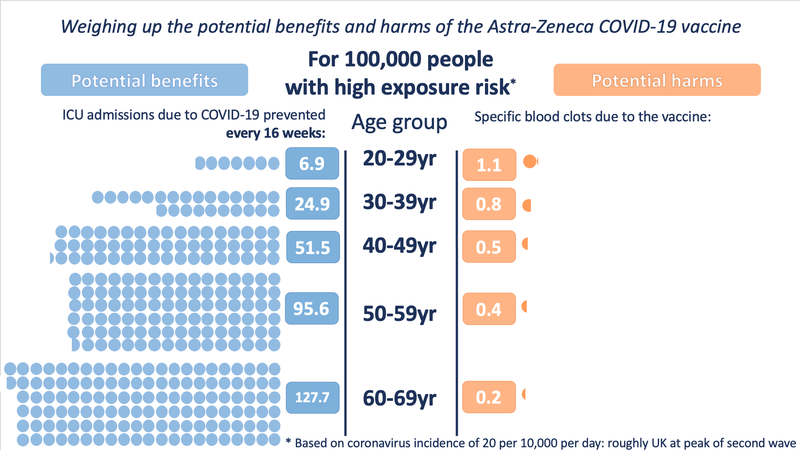
@NoMaloneZone @qandamazon I’ve read it so you don’t have to! (Though read it. It’s short, at least.)
We begin by noting that vaccines save lives – true. We go on to discuss the author going on breakfast television – also true (I understand) but not normally the stuff of the scientific literature. 1/
We begin by noting that vaccines save lives – true. We go on to discuss the author going on breakfast television – also true (I understand) but not normally the stuff of the scientific literature. 1/
@NoMaloneZone @qandamazon The author then talks about the death of his 73-year-old father from coronary artery disease. I’m sorry for his loss. 2/
@NoMaloneZone @qandamazon The author then speculates that his father’s CAD might have been caused by receiving an mRNA COVID vaccine six months earlier. He notes that in the trials there was no evidence of increased CAD in the vaccine group (true). 3/
@NoMaloneZone @qandamazon We then discuss efficacy in the trials – which the author notes was 95% (true). The author notes that how much this reduces your absolute risk depends on how prevalent a disease is (true). 4/
@NoMaloneZone @qandamazon He claims that this was not really discussed, but I don’t really buy this, when the PM explained to us on national TV how the benefits of vaccination depend on how prevalent disease is (though this was specifically with respect to risk-benefit analysis for the AZ vaccine). 5/
@NoMaloneZone @qandamazon Remember Whitty and Johnson presenting these slides in the Spring of 2021? 6/
wintoncentre.maths.cam.ac.uk/news/communica…

wintoncentre.maths.cam.ac.uk/news/communica…


@NoMaloneZone @qandamazon The author then uses UKHSA data to show that you’re much less likely to die of COVID if you’ve been vaccinated against COVID (true). 7/ 

@NoMaloneZone @qandamazon He estimates that for every 230 elderly people vaccinated, we prevent one death, but that in younger (less at risk) age groups we need to vaccinate more people to prevent each death (true). 8/ 

@NoMaloneZone @qandamazon He forgets to mention that there are other downsides to catching COVID that bother younger people, for example, inconvenience of time off work, it’s unpleasant being sick, risk of Long COVID. 9/
@NoMaloneZone @qandamazon But actually, even just looking at his death rate data… I’d say this is quite in favour of vaccination. 10/
@NoMaloneZone @qandamazon He points out that as well as benefits, we do have to consider harms. True! And he notes that myocarditis has been found as an AE associated with vaccination, particularly in young males. Also true. 11/
@NoMaloneZone @qandamazon He then cites some estimates of how common this is, though I note he seems to favour estimates on the high side. 12/
@NoMaloneZone @qandamazon If this were a serious piece of research (which… you know, we started talking about breakfast TV, so…) this would be a missed opportunity to approach the question of how common vaccine-associated myocarditis is in a systematic way with a meta-analysis to get at real risks. 13/
@NoMaloneZone @qandamazon Luckily this has been done, finding a rate of 1 case per ~30,000 doses overall, or 1 case per ~17,000 specifically in males under 30 (both of these are lower than the stats the author opts to show). 14/
thelancet.com/journals/lanre…
thelancet.com/journals/lanre…
@NoMaloneZone @qandamazon This review also compares peri/myocarditis risks from COVID vaccination and infection, finding that infection is riskier. 15/
@NoMaloneZone @qandamazon The author goes on to note that there are reports of adverse events in Yellow Card and VAERS. True (indeed, that’s the point of them). 16/
@NoMaloneZone @qandamazon He notes that more such reports have been made for COVID vaccines than for – for example – MMR vaccines. I don’t think this is particularly surprising, since these are 1. Newer (people more likely to report) and 2. Being offered to more people. 17/
@NoMaloneZone @qandamazon The author notes that there has been an increase in ambulance calls for cardiovascular events among under 40s in the Midlands area of the UK and in Israel. The author suggests that these may be vaccine-associated, but following the references there’s no evidence of this. 18/
@NoMaloneZone @qandamazon (As a side point, he says that one of these papers has been “published in Nature”. But it hasn’t. Unsure if this is an attempt to deliberately mislead or just poor scholarship.) 19/
@NoMaloneZone @qandamazon Pertinent to this, a recent paper found an increased risk of cardiovascular events occurring >30 days post-COVID infection. So an alternative possibility is that post-COVID cardiovascular events are responsible for the increased number of callouts. 20/
nature.com/articles/s4159…
nature.com/articles/s4159…
@NoMaloneZone @qandamazon The author goes on to say that mRNA vaccines are not limited to the site of injection. True (though we’ve known this since 2015). 21/
ncbi.nlm.nih.gov/pmc/articles/P…
ncbi.nlm.nih.gov/pmc/articles/P…
@NoMaloneZone @qandamazon …And that spike protein can persist in the body for 4 months post-vaccination. Which when I followed the reference, the study only looked at people two weeks post-vaccination. So not sure where he gets the idea of 4 months from. 22/
jimmunol.org/content/207/10…
jimmunol.org/content/207/10…
@NoMaloneZone @qandamazon He proposes that if Spike protein associated with the virus can cause cardiovascular harm, maybe Spike protein from the vaccine can do something similar? This is not a new argument, and it’s also one that’s already been debunked. For example here... 23/
sciencebasedmedicine.org/the-deadly-cor…
sciencebasedmedicine.org/the-deadly-cor…
@NoMaloneZone @qandamazon I would also point out that, if Spike protein on its own is so bad, why don’t we see myocarditis associated with other COVID vaccines? And why do we see similar rates of myocarditis associated with non-COVID vaccines (for example smallpox vaccine)? 24/
thelancet.com/action/showPdf…
thelancet.com/action/showPdf…
@NoMaloneZone @qandamazon The article finishes by saying the elderly and vulnerable benefit more from vaccination than others. I don’t think this is a particularly controversial statement. Indeed, this is why we offer boosters only to those >50 or otherwise at risk. 25/
https://twitter.com/DHSCgovuk/status/1573205530318753792?s=20&t=yyUiHztFEODSTYGmmnq0Kg
@NoMaloneZone @qandamazon Overall… just a bit of a weird article. It make a lot of points in favour of vaccination (agree), notes that myocarditis is sometimes an AE (agree, but he’s misrepresented the rates), speculates wildly about spike protein (disagree)... 26/
@NoMaloneZone @qandamazon ... then finally concludes that vaccination is beneficial for old and vulnerable people (agree – and enshrined in UK policy). 27/
@NoMaloneZone @qandamazon His final sentence is to suggest that his 73yo father’s CAD was a result of vaccination. I don’t want to dwell on this, because it’s clearly affected him, but it's worth noting that the article itself says that this age group benefits from vaccination. 28/28
@NoMaloneZone PS. A point I meant to make but forgot about brought up in the replies. The author suggests we should use all-cause mortality to assess the vaccines. We do actually have this data... and vaccinated people are less likely to die of all causes.
https://twitter.com/M1066R/status/1574422170268229632?s=20&t=_kMP2B6Eh-YCM_mMmK428w
@NoMaloneZone Although of all this can be accounted for by the fact that vaccinated people are less likely to die from COVID. You can find the data in Table 1 of the ONS dataset on deaths by vaccination status.
ons.gov.uk/peoplepopulati…
ons.gov.uk/peoplepopulati…
@NoMaloneZone PPS. More from the ONS mortality stats plotted by @dr_barrett. No increase in heart disease deaths.
https://twitter.com/dr_barrett/status/1574473896061026322
• • •
Missing some Tweet in this thread? You can try to
force a refresh








